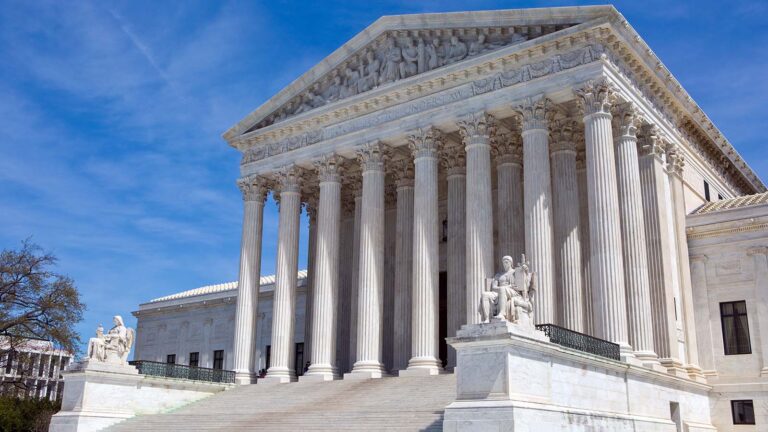The U.S. Supreme Court will hear a landmark tax case on Tuesday that may set a precedent on the legality of taxing unrealized gains. Moore vs. United States is unique in several ways — chiefly, in its potential to affect the U.S. tax code and cost the federal government “hundreds of billions of dollars in revenue,” according to The Hill.
So, what do you need to know about Wall Street’s latest Supreme Court fascination?
Well, after being scheduled back in October, the highest court in the land will finally hear oral arguments related to Moore v. U.S. The case is concerned with the legality of taxing certain kinds of “unrealized” gains. Unrealized gains refer to increases in value in properties like stocks or bonds, that investors may own, but haven’t directly profited from.
According to some legal experts, while much of the U.S. tax code is explicit in demanding income be “realized” before the government can tax it, it remains a point of ambiguity.
In this regard, the Supreme Court’s decision could have major impacts on the government’s taxable reach. According to the Justice Department, even if the court is narrow in its limitations on what merits an unconstitutional unrealized gains tax, the ruling may wind up costing the government $340 billion over the next 10 years, should it rule in favor of the plaintiff.
Why Do Unrealized Gains Matter in Moore vs. United States?
Moore v. U.S. originated with the Tax Cuts and Jobs Act, a Trump-era piece of legislation. The law attempted to dis-incentivize U.S. corporations holding cash overseas by lowering certain taxes on foreign income. In exchange, U.S. investors would have to pay a onetime tax on several decades of accumulated foreign profits in the form of a “transition tax.”
Among those affected by the law were Charles and Kathleen Moore, two Americans who had long-standing investments in KisanKraft, an Indian company owned by a friend. The Moores were issued a $15,000 tax bill on the basis of the company’s retained earnings.
However, the Moores argue that they never received any profits from the company, as any and all company were reinvested. As such, the Moores believe the transition tax is unconstitutional as it exceeds Congress’s explicit taxing powers. The Moores rationalized that unrealized gains can’t be considered income, as defined in the Constitution.
Reasonably so, as the notion of “direct taxes,” as vaguely defined in the Constitution, refers to income able to be apportioned to the states. The Moores challenge that the transition tax isn’t a tax on “income” at all, as they’ve never realized any direct cash flow from KisanKraft, meaning the revenue can’t be apportioned among the states.
What Will Moore vs. United States Mean for Wall Street?
It’s hard to overstate the potential implications of the case. Business profits in the trillions are taxed every year, regardless of whether earnings are distributed to individual investors. Should the Moores come out on top, some have speculated the government’s taxable authority could come under scrutiny.
There is, of course, much more to the story. Indeed, the Supreme Court has many ways in which to minimize the scope of its ruling, and there are even ways to pass the transition tax off as a “duty” or “excise,” which has no requirement to be apportioned. Of course, the Supreme Court may also simply opt to send the case back down to lower courts.
That said, the historically conservative Supreme Court has some legal analysts concerned of a potential path of most resistance. Regardless, Wall Street is keeping a close eye on the case ahead of the start of oral arguments tomorrow.
On the date of publication, Shrey Dua did not hold (either directly or indirectly) any positions in the securities mentioned in this article. The opinions expressed in this article are those of the writer, subject to the InvestorPlace.com Publishing Guidelines.

